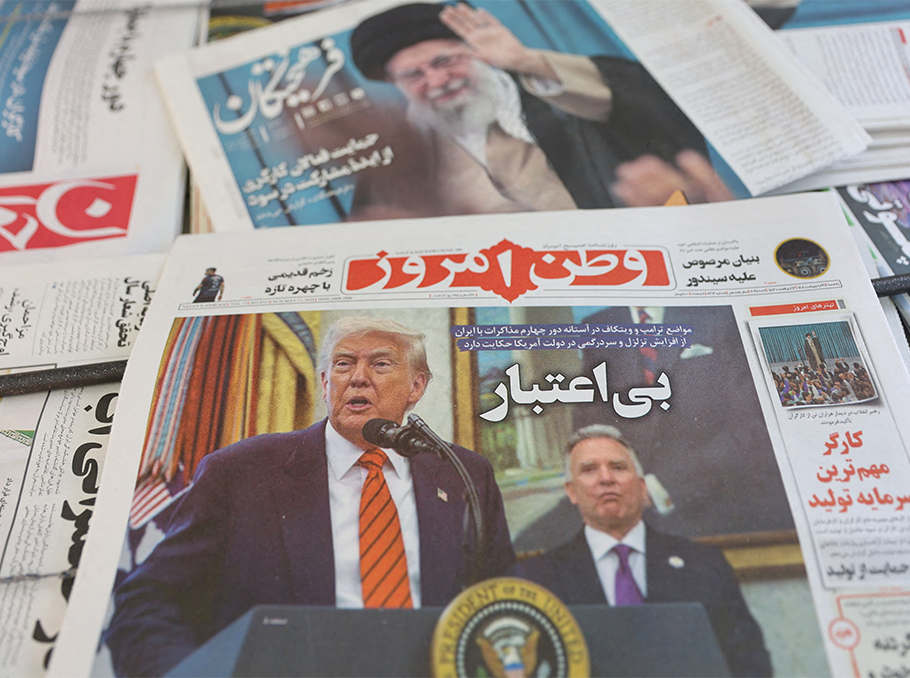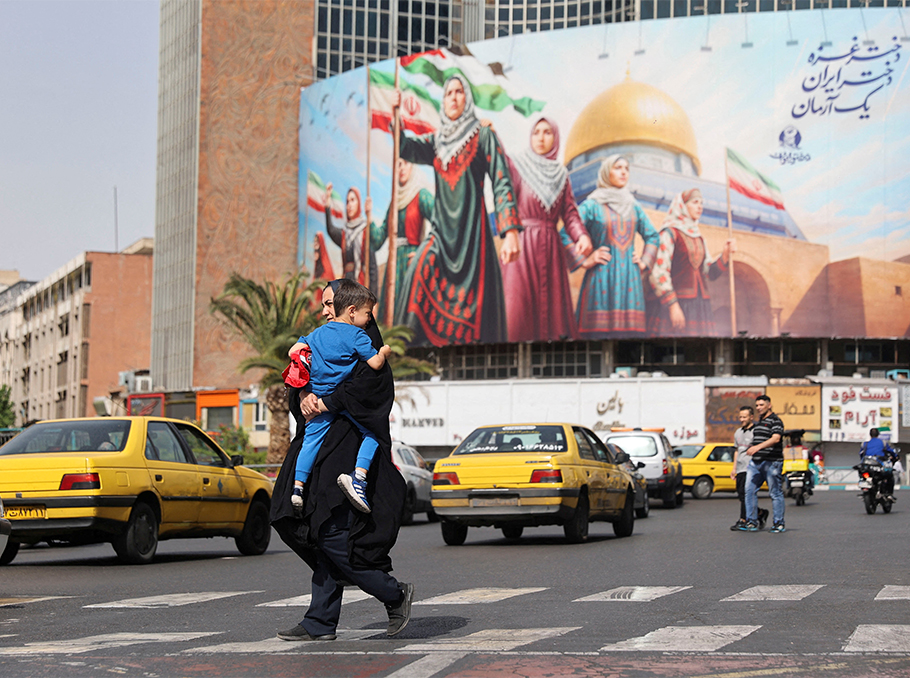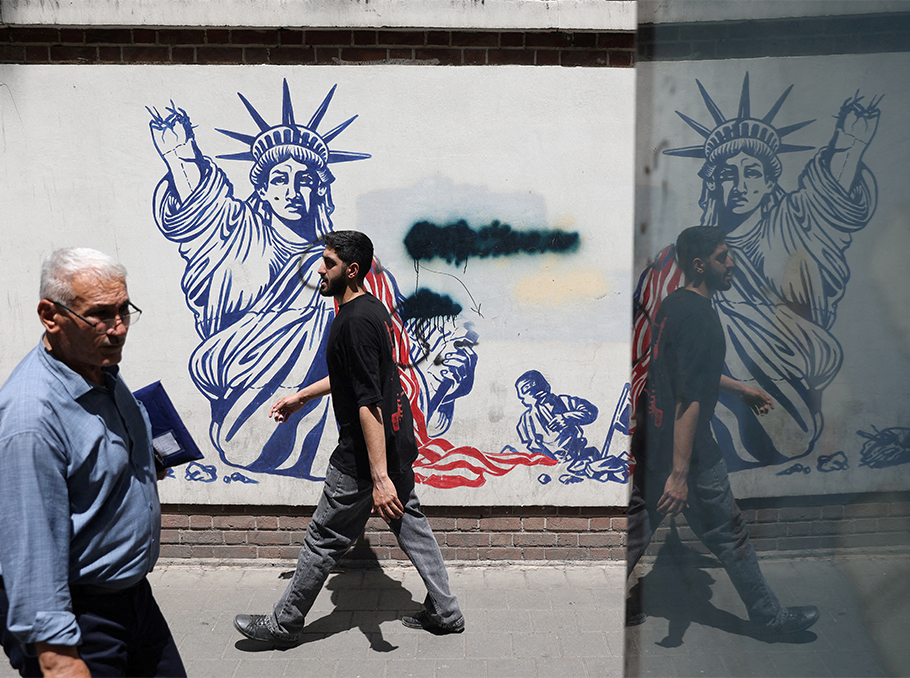Ian Bremmer
Negotiators from the United States and Iran have just convened in Oman for their fourth round of nuclear talks. The two sides remain far apart on fundamental questions, they have diverging expectations, and they are running out of time. But for the first time in years, there is cause for optimism. What distinguishes this moment is not a sudden convergence of positions but a shared recognition that diplomacy is preferable to confrontation.
Iran insists that its nuclear program is strictly for civilian purposes, and the latest US intelligence assessment concludes that it is not currently building a nuclear weapon. Nonetheless, Iran’s enrichment activities have expanded significantly since Donald Trump withdrew the United States from the 2015 Joint Comprehensive Plan of Action (JCPOA) in 2018. Today, Iran is a threshold nuclear state with enough 60%-enriched uranium to produce six nuclear weapons (if enriched to 90%), and the ability to “dash to a bomb” in about six months (though weaponizing a device would probably take between one and two years).
For much of the West, this situation is unacceptable. Without diplomatic progress by the end of June, the US will be compelled to trigger a “snapback” of United Nations sanctions. But that would destroy what remains of the diplomatic track, prompt Iran to withdraw from the Nuclear Non-Proliferation Treaty, and escalate the risk of a military conflict.
Trump wants a comprehensive deal that goes beyond the JCPOA in curtailing enrichment, restraining missile development, and modifying Iran’s regional behavior. But this is a fantasy. Iran will not agree to a full rollback of its nuclear program, let alone dismantle its regional alliances – and especially not in the next few weeks. Nor will it give up enrichment or ballistic missile capabilities that are central to its deterrence posture.
Yet even in this constrained environment, a diplomatic path remains open. Both sides have incentives to accept a more limited agreement to avoid military confrontation. Trump, for all his fire and fury, is disinclined to start new wars. His recent removal of National Security Adviser Michael Waltz, an Iran hawk, was telling. So was his announcement, on May 6, of a ceasefire with the Houthi rebels in Yemen.

Trump prefers a negotiated outcome, as do his Gulf allies, and he believes that there has never been a better time to get one, now that Iran has been so substantially weakened. With his administration’s efforts to broker a Russian-Ukrainian ceasefire faltering, the Iran file offers his best – and perhaps only – chance for a major diplomatic success before the end of the year.
Although Iran initially rejected formal engagement, its hard-liners ultimately approved indirect talks via Oman, indicating a willingness to engage in direct negotiations if progress is made there. This shift reflects the Iranian regime’s recognition that continued economic and diplomatic isolation carries increasing costs. Iranian officials view sanctions relief as essential to reversing the slow collapse of the economy and containing risks to the regime from social unrest.
While the Iranians regard Trump as a hostile actor, some see his desire to secure diplomatic “wins” – and his reluctance to launch new wars – as an opportunity to obtain a reprieve without offering major concessions. Though Iran does not directly control the Houthis, it did reportedly press them to agree to the ceasefire, which addressed a key US concern – Iran’s support for regional proxies – and improved the mood for nuclear talks.
The sticking point is Iran’s enrichment capability. It has rejected US Secretary of State Marco Rubio’s suggestion that it rely on imported uranium for its civilian nuclear program, rather than enriching domestically. The Islamic Republic views enrichment as a non-negotiable sovereign right. Still, it remains open to a more limited deal that would cap enrichment, ensure verification by the International Atomic Energy Agency, and provide credible assurances that it is not building a nuclear weapon.
Recent statements from the White House have also shown greater flexibility. On May 4, Trump said his main goal is to prevent Iran from acquiring a nuclear weapon, not to eliminate its civilian nuclear capacity. And on May 7, Vice President J.D. Vance reiterated that Iran “can have civil nuclear power,” but not an enrichment program that brings it close to a weapons capability. This distinction – between civilian use under strict limits and weaponization potential – could allow for a narrow agreement aimed at keeping diplomacy alive past the summer.

This is not America’s preferred outcome, of course. Trump is notoriously impatient and will be skeptical of a deal that appears designed to string him along. But a comprehensive agreement between parties that deeply mistrust each other cannot be negotiated in two and a half months. With Trump having already threatened to bomb Iran if talks fail, a more modest deal is the only viable alternative to military confrontation. Fortunately, Trump has always shown a willingness to shift away from maximalist positions when he can claim a political victory.
If progress is made, the US would defer the sanctions snapback, either informally, by pressuring its European allies, or by seeking a new UN Security Council resolution to extend the deadline. US allies in Europe, and even Russia and China, could support such a move if it is framed as a way to avoid a crisis. This approach would preserve the option of a snapback, while keeping the diplomatic track open and holding off immediate escalation.
The military option would remain on the table. The US has expanded deployments in the region, and B-2 stealth bombers capable of carrying munitions designed to penetrate hardened targets – such as Iran’s enrichment facilities at Fordow and Natanz – are in place. These deployments serve both as negotiating leverage and as preparation for potential air strikes in case the talks fail.
There is no guarantee of success. Iran may reject US terms or overplay its hand, dragging its feet in the hope of extracting further concessions. Trump may decide that the concessions are insufficient and shift course toward a snapback, or worse. If negotiations collapse and the US or Israel attacks Iran’s nuclear facilities, Iran will retaliate against US military targets in the region and move to weaponize its nuclear program.
These are all realistic scenarios. But despite these risks, the current round of diplomacy represents the most serious opportunity for nuclear de-escalation since the collapse of the JCPOA seven years ago.
Copyright: Project Syndicate, 2025.
www.project-syndicate.org

















